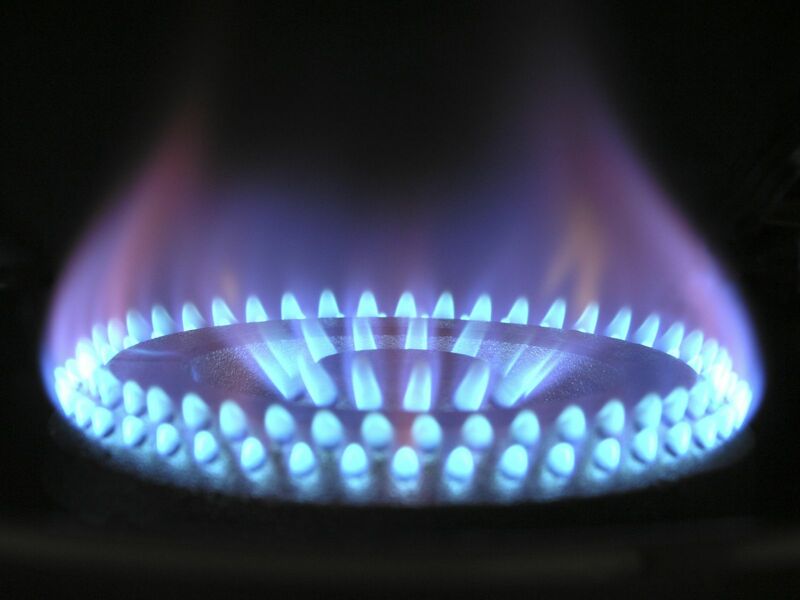
In an August 25 Barchart article on the natural gas market, I highlighted that seasonality is critical, and “the uncertainty of the upcoming winter could make the current prices look like bargains before the end of 2023.” U.S. natural gas for October delivery was trading at $2.642 per MMBtu on August 25. On September 12, the price was slightly higher at the $2.72
5 level.
U.S. inventories continue to rise but are below the 2019-2022 end-of-the-season highs
Natural gas is heading toward the 2023/2024 peak demand season, with plenty of the energy commodity in storage across the United States.

Source: EIA
As of September 1, 2023, there were 3.148 trillion cubic feet in storage, 17.2% higher than the previous year and 7.6% above the five-year average. The injection season will end in November. In 2022 and 2021, there were 3.644 tcf in storage at the start of the withdrawal season. In 2020, the supplies peaked at 3.958 tcf; in 2019 and 2018, the supplies were 3.732 and 3.234 tcf, respectively.
Baker Hughes reported that as of September 8, 113 North American natural gas rigs were operating, which was 53 below the previous year. Therefore, natural gas stocks may not build quickly over the coming weeks and months as the withdrawal season approaches.
A trading range between $2.50 and $3.00 over the past months
Natural gas prices stabilized after rising to $10.028 per MMBtu in August 2022 and falling below the $2 level in February through April 2023.

The October ICE U.S. natural gas futures chart since June 2023 highlights the trading range with the most price action between $2.50 and $3.00 per MMBtu. Natural gas was sitting within the trading band at over $2.70 per MMBtu on September 12.
The odds favor another test of the upper end of the range
Seasonality and the uncertainty of winter demand for the heating commodity mean that natural gas futures could experience a rally from October through the beginning of 2024.

The forward curve out to January 2024 illustrates the over 35% premium for NYMEX natural gas for delivery in January compared to the October futures. January NYMEX natural gas was trading nearly a $1 premium to the nearby futures contract because of seasonal factors. However, below $3.75 per MMBtu for January delivery, natural gas remains significantly lower than the August 2023 high, leaving lots of room for a rally if the temperatures are colder than averages and natural gas demand moves higher.
Meanwhile, another factor that could ignite a rally over the coming months is the weather in Europe.
An update on Dutch and U.K. natural gas prices
Western European countries have relied on Russian natural gas exports via the pipeline network for years. The war in Ukraine has caused Russia to use natural gas and crude oil as economic weapons against countries supporting Ukraine.
Dutch and U.K. natural gas prices exploded to all-time highs in March 2022, but a warm 2022/2023 winter caused prices to implode. Dutch prices reached lows in May 2023 and have turned slightly higher over the past months. U.K. natural gas futures followed the same path. Since U.S. LNG travels the world by ocean vessels, NYMEX U.S. natural gas prices have become far more sensitive to European prices. A cold European winter could push the U.S. prices significantly higher as the war continues.
Trade natural gas as it is not a market for investment
Natural gas is a highly volatile commodity, and the price variance can create price explosions and implosions. The boom-and-bust nature of the energy commodity makes it a nightmare for investors but a paradise of opportunities for nimble traders with their fingers on the pulse of the natural gas futures arena.
Natural gas is only appropriate for disciplined traders who understand that a plan and discipline are requirements for success. Since the winter is the most volatile period, natural gas should offer plenty of opportunities over the coming months. At the current price level, the odds favor the upside.
Investors should avoid the natural gas futures arena, but traders can embrace the upcoming winter months.
The most important thing to remember when trading natural gas is that long or short positions are not at the execution price but at the current market price level. Adjusting risk levels for existing positions is critical for success.
On the date of publication, Andrew Hecht did not have (either directly or indirectly) positions in any of the securities mentioned in this article. All information and data in this article is solely for informational purposes. For more information please view the Barchart Disclosure Policy here.






